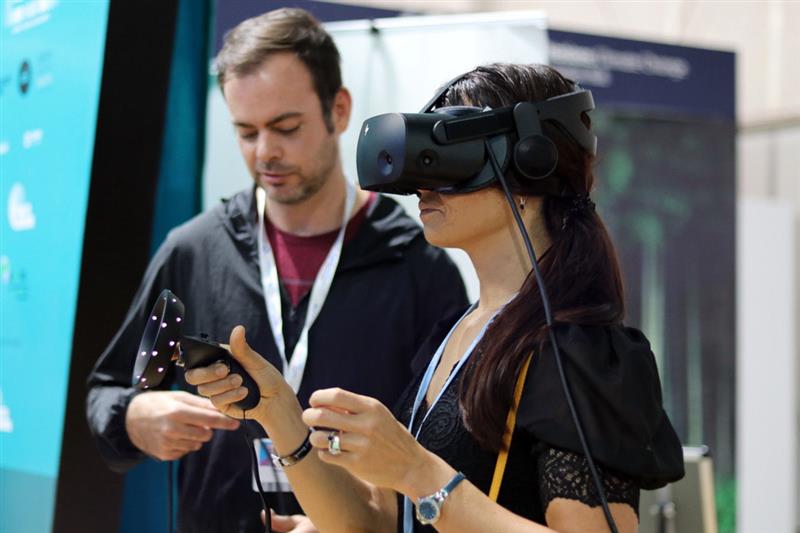The metaverse isn’t doing too hot. What can we expect?
Meta's metaverse is basically hemorrhaging money.

A few minutes every morning is all you need.
Stay up to date on the world's Headlines and Human Stories. It's fun, it's factual, it's fluff-free.
Meta CEO Mark Zuckerberg has been notoriously invested in branching the company out into the metaverse as the next big thing. But Meta's metaverse is basically hemorrhaging money.
In the first quarter of this year, Meta's metaverse-related projects lost the company US$4 billion. That's a pretty steep number for a company that's laid off 21,000 people in the last six months.
But Zuckerberg is standing his ground. Just a couple of weeks ago, he told investors: "A narrative has developed that we're somehow moving away from focusing on the metaverse vision.So I just want to say upfront that, that's not accurate. We've been focusing on both AI and the metaverse for years now, and we will continue to focus on both."
The "metaverse" became a household name in 2021, and it did win investors over at the beginning. This idea of augmented reality (AR) and virtual reality (VR) digital worlds providing a new interactive platform definitely sounds promising. Think of all of the in-universe purchases users could make using IRL money. In 2021, Zuckerberg even said, "Our goal is to help the metaverse reach a billion people and billions of dollars in commerce in the next decade."
But the product's uncertainties are starting to show through its shrinking hype. Even though there's been a lot of media attention for the metaverse, most people don't seem interested in participating. Stats show there are 400 million active metaverse users, but without that many people using it at the same time and in the same virtual spaces, it doesn't seem to be as engaging. And many other users have commented on the UX/UI, with the graphics making it feel like you've been dropped into a bizarre cartoon world. There have also been reports of bugginess in different spaces.
Both Disney and Microsoft are shutting down their metaverse departments now. Tinder also had plans to create a virtual dating space in the metaverse but has now scrapped that idea.
And now, it looks like Meta is trying to prioritize generative AI in its different services and platforms, so we're not sure if the metaverse is going by the wayside as the company moves on to trendier tech developments.




Comments ()